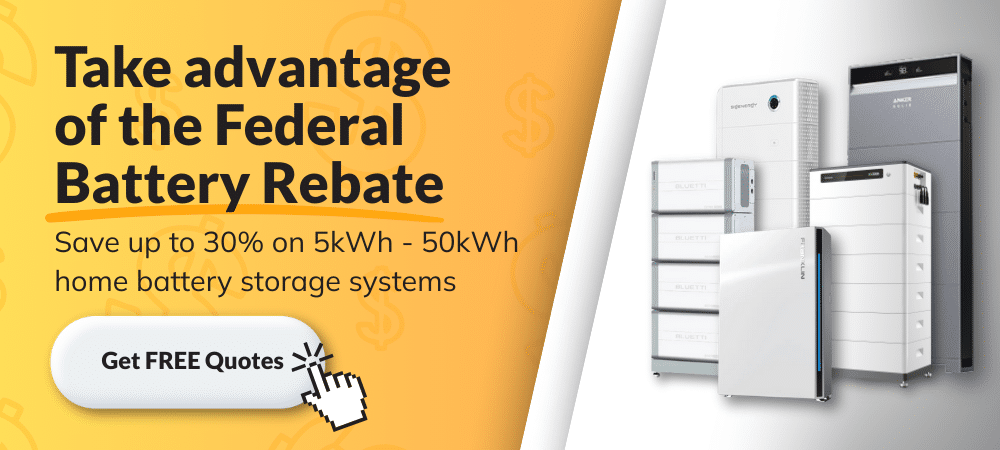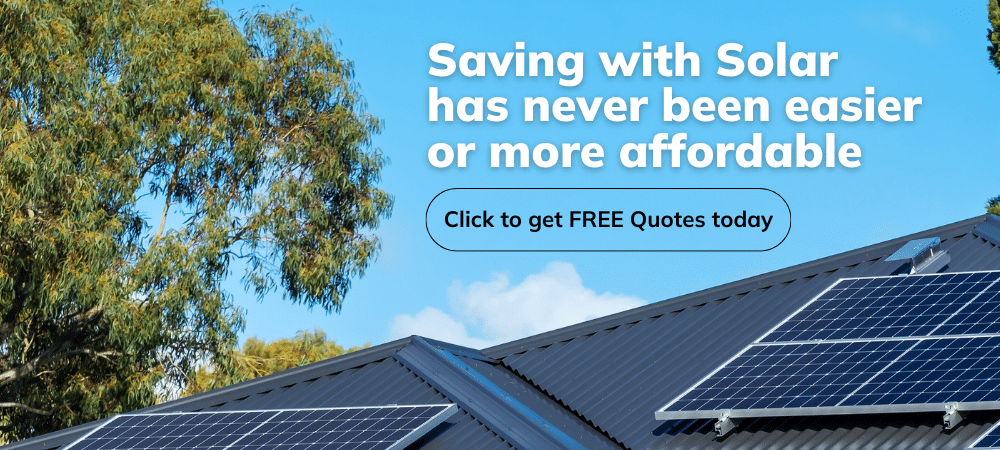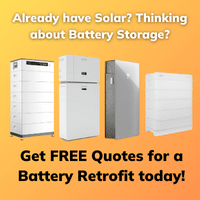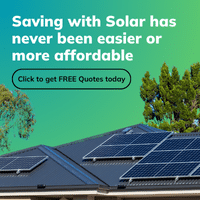Governments worldwide are taking proactive measures to promote energy efficiency in pursuing sustainable development and combating climate change.
In Victoria, Australia, various state-funded programs, rebates, incentives, and subsidies are available to encourage residents to adopt energy-efficient practices and technologies. This comprehensive guide highlights the energy-efficient products and initiatives currently offered in Victoria.
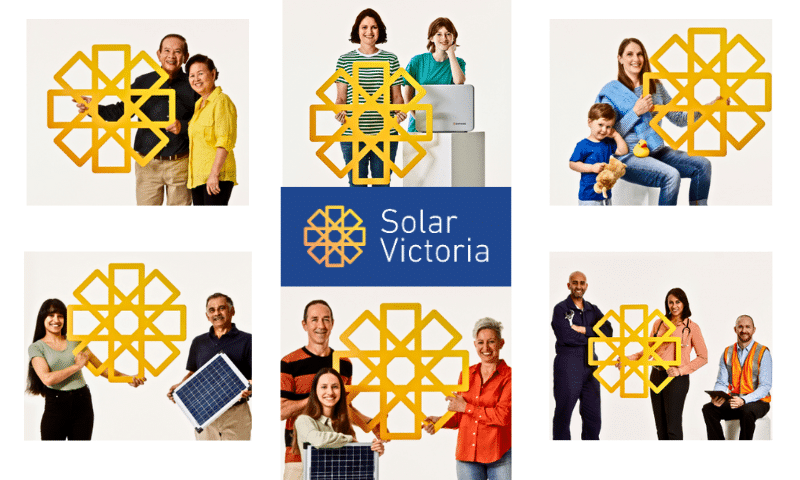
On this page
Energy Matters has been a leader in the renewable energy industry since 2005 and has helped over 40,000 Australian households in their journey to energy independence.
Let us discuss and choose the best quote that suits your needs and budget, and we can connect you with our trusted local installers, who will provide up to 3 FREE solar quotes for your home and business solar energy system. Get your free quotes today!
Solar rebates or incentives are provided to Victorian business owners, homeowners and/or renters from three basic sources.
1. Federal government incentive
Small-scale Renewable Energy Scheme (STC)
Solar panel PV systems, small-scale wind systems, small-scale hydro systems, solar water heaters, and air source heat pumps are all eligible under the Small-scale Renewable Energy Scheme (SRES), which offers financial incentives to all Australian individuals and small businesses. It does it by issuing Small-scale Technology Certificates (STC).
STCs are an incentive well worth utilising. STCs are available for solar panel installations up to 100kW.
The Renewable Energy Target operates by creating tradable STCs that provide a financial incentive for more electricity production from renewable sources. Through the REC Registry, an online trading platform managed by the Clean Energy Regulator, STCs are issued and distributed.
Commercial systems and Large-Scale Generation Certificates (LGCs)
STCs are no longer applicable when a system of 100kW or greater is installed. Instead, your system will be able to generate LGCs. Your company would be recognised as an ‘Accredited power station’.
Each year, your business will be able to make a claim for the energy generated by your system. 1MWh (megawatt hour) is equivalent to 1 x LGC. These LGCs can be sold to entities required to offset their emissions in accordance with the Renewable Energy Target.
Cheaper Home Batteries Program
Cheaper Home Batteries Program outlines available federal battery rebates and incentives to lower upfront costs and encourage broader adoption of residential energy storage.
- Rebates: The program offers rebates of around $370 per kilowatt-hour (kWh) for eligible battery installations, potentially saving households thousands of dollars.
- Eligibility: The program is open to homeowners with existing solar systems, those installing new solar panels and batteries, and small businesses.
- End date: Until 2030, with rebates reducing over time as costs fall
No limitations on “double-dipping” or “stacking” apply to the government rebate. The state loan and refund programmes, however, can have limitations of their own. Learn more about the Cheaper Home Batteries Programs on our comprehensive page.
2. Electricity retailers - Feed in Tariff (FiT)
Household Feed-in Tariff (FiT)
- From July 1, 2025, to June 30, 2026, the minimum single-rate FiT in Victoria is set at 1.04 cents per kWh.
- The minimum single-rate FiT in Victoria is set at 3.3 cents per kWh from July 1, 2024, to June 30, 2025.
Time-varying FiTs pay variable rates based on the day the electricity is exported to the grid. The table below shows the minimum daily feed-in tariffs for 2025–2026 (effective July 1, 2025).
| OPTION 1 | |||
| Period | Weekday | Weekend | Rate: cents per kilowatt hour (c/kWh) |
| Overnight | 10 pm to 7 am | 10 pm to 7 am | 7.55 c/kWh |
| Day | 7 am to 3 pm, 9 pm to 10 pm | 7 am to 10 pm | 0.00 c/kWh |
| Early Evening | 3 pm to 9 pm | n/a | 5.91 c/kWh |
| OPTION 2 | |||
| Period | Everyday | Rate: cents per kilowatt hour (c/kWh) | |
| Shoulder | 9 pm to 10 am ; 2 pm to 4 pm | 1.42 c/kWh | |
| Off-peak | 10 am to 2 pm | 0.00 c/kWh | |
| Peak | 4 pm to 9 pm | 6.57 c/kWh | |
To maximise your returns, comparing offers is worthwhile as these rates can differ between merchants. Check our page to learn more about the Solar Feed-In Tariff in Victoria.
3. State government: Victoria solar rebates and incentives available
The nitty-gritty of the Solar Homes Program- VIC solar rebate
Do I qualify for a solar panel rebate in Victoria?
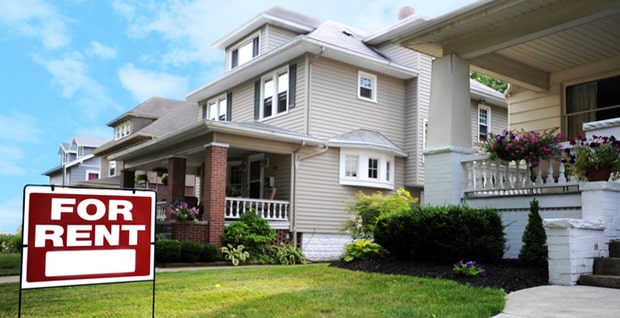
- Solar rebates for rental properties: Eligible rental providers can apply for a rebate of up to $1,400 to eligible rental providers for installing solar panel (PV) systems on a maximum of two rental properties each financial year.
- Solar panel rebates: Solar panel rebates of up to $1,400 are available to install solar panel (PV) systems for homeowners with existing homes, homes under construction, and rental properties. Rebates are distributed each month on the specified rebate release dates. To cut installation expenses even further, qualified Victorians can apply for an interest-free loan in their rebate amount. The loan must be repaid over four years. However, it can be paid off sooner in one big amount.
- Hot water rebate: Solar hot water and heat pump hot water systems consume less energy and can be powered by renewable energy. Installing a more effective solar hot water or heat pump hot water system can assist in lowering glasshouse gas emissions and energy bills. Installing solar hot water systems can save homeowners between $140-$400 per year on their electricity bills. A hot water rebate (previously the solar hot water incentive) of up to $1,000 is offered on qualified heat pumps and hot water systems.
- Solar battery loans: Solar battery loans are Interest-free loans that help homeowners pay for the installation of solar battery systems:
Loan amount: Up to $8,800 | Repayment period: 4 years | Eligibility: You may be eligible if you meet the following criteria:
- You own the property where the system will be installed
- Your household’s taxable income is less than $210,000 per year
- Your property is worth less than $3 million
- Your property doesn’t already have a solar battery rebate
- Your property has a solar panel system with an inverter capacity of at least 5kW
- Your property doesn’t have an existing energy storage system
- The energy storage solution you propose has a capacity of at least 6kWh
Did you know Energy Matters is Australia’s largest renewable news, blog and educational resource? Subscribe to Energy Matters’ weekly newsletter and keep updated even with incentives, rebates and recommended solar product offers.
How to reduce energy bills?
For Victorians, there are numerous practical steps that can be taken to make a meaningful impact on both the environment and their wallets. Firstly, optimising home energy efficiency is crucial. Simple measures such as sealing drafts, improving insulation, and using energy-efficient appliances can significantly reduce energy consumption. Additionally, being mindful of electricity usage by turning off lights and unplugging electronics when not in use can lead to substantial savings. Embracing natural lighting and utilising natural ventilation whenever possible are also effective ways to minimise energy usage.
Victorians have been actively seeking ways to reduce their energy bills while embracing sustainable practices. With the growing awareness of climate change and the need for energy conservation, individuals are turning to innovative solutions. Many Victorians are investing in energy-efficient appliances and adopting smart home technologies that allow them to monitor and control their energy usage.
Additionally, there is a surge in rooftop solar panel installations, taking advantage of Australia’s abundant sunlight to generate clean and renewable energy. Alongside these individual efforts, the Victorian government has implemented various initiatives, such as offering incentives for energy-saving upgrades and promoting energy-efficient building practices. These measures not only help residents cut down on their energy consumption but also contribute to a greener future for the state. Through a combination of personal choices and supportive policies, Victorians are successfully reducing their energy bills while making significant strides towards sustainability.
Check out our page to learn more about easy ways to save money on your energy bills.
Energy-saving strategies and carbon-reduction tips
In addition to household strategies, transportation choices play a pivotal role in carbon reduction. Victorians can opt for sustainable modes of transportation such as walking, cycling, or using public transport whenever feasible. For longer distances, carpooling or using shared rides services can significantly reduce emissions. Embracing electric vehicles (EVs) is another impactful step towards a low-carbon future. The Victorian government offers incentives and subsidies for EV purchases, making the transition even more accessible. Furthermore, reducing water consumption can indirectly save energy, as water treatment and distribution require significant amounts of energy. By implementing water-saving measures such as using efficient fixtures and practising mindful water usage, Victorians can contribute to overall energy conservation efforts while conserving water resources.
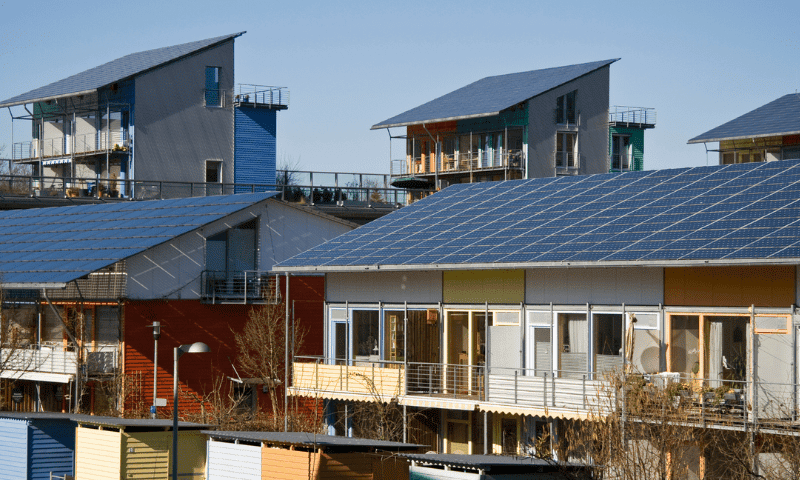
By adopting these energy-saving strategies and carbon-reduction tips, Victorians can not only make a positive impact on the environment but also enjoy the long-term benefits of reduced energy costs and a more sustainable lifestyle. Each small step taken collectively contributes to a greener, more resilient future for all.
Read more about energy saving, carbon reduction and cash-saving opportunities
- How You Can Reduce Your Carbon Footprint With Solar Power
- 10 Tips To Reduce Your Live Electricity Usage In Australia
- What can you eat to reduce your carbon footprint?
- How to save money and improve your carbon footprint at your business
- Australia: Net Zero Emissions Target By 2050
- How to calculate your carbon footprint










